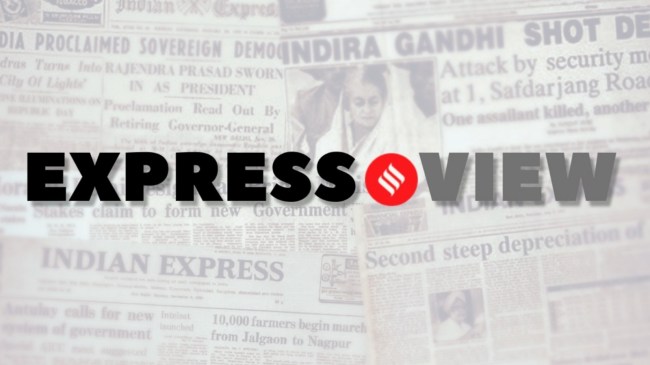Opinion Express view on J&K infra push: Delhi and Valley
The move is welcome. Whether and how the Centre fulfils its commitments, economic and political, will be watched
 On Monday, PM Modi refrained from giving a time frame for restoring J&K's statehood, even as he said that the “distance between (Delhi and the Valley) has been erased”.
On Monday, PM Modi refrained from giving a time frame for restoring J&K's statehood, even as he said that the “distance between (Delhi and the Valley) has been erased”. After the abrogation of Article 370, the Centre gave the impression of doubling down on the erstwhile state’s economic development, while seeking to insulate it from the pull and tug of democratic politics. While the latter part of its strategy was controversial and questionable — the assembly election of September-October came not a moment too soon — the former, the development push, is welcome. The Narendra Modi government recognised the importance of tourism in generating employment, supporting small businesses and improving J&K’s finances. This was accompanied by the understanding that the region needs to address critical issues related to infrastructure. The Centre has initiated road development initiatives worth more than Rs 40,000 crore, including four national highway projects. This infrastructure push has continued after the Union Territory voted the National Conference — a member of the Opposition INDIA bloc — to office. On Monday, as PM Modi inaugurated the Sonmarg tunnel in Kashmir, he pointed to a meeting ground between J&K and the Centre: “It’s time for all of us to realise our dreams, and make resolutions and accomplishments together…”. If his overtures to the Centre after the October verdict are any indication, Chief Minister Omar Abdullah too seems to have been nudged by the responsibility cast on him by the mandate to work closely with the Modi-led Centre. The pleasantries exchanged by CM Abdullah and PM Modi — evident at the public rally to mark the launch of the tunnel — are a calming sign in a landscape ravaged by decades of militancy.
“The people are asking me when will Jammu and Kashmir get the status of a state… My heart is saying very soon the Prime Minister will fulfil his promise to the people of J&K as well and J&K will be a state again,” CM Abdullah said. The non-confrontational tone is consistent with the approach Abdullah has adopted since October, even as he has come under pressure from within his party and outside over his government’s limited powers. He has maintained that restoration of statehood remains his government’s priority, but at the same time, that he does not doubt the Centre’s intentions. On January 3, for instance, while pointing out that PM Modi “had himself committed to the restoration of statehood to J&K”, J&K’s CM said he wanted to give the Centre “the first opportunity” to do so rather than “going to courts”. Abdullah, of course, is also being pragmatic. As he put it earlier this month: “J&K runs a deficit budget, therefore we are more dependent on the Government of India than other states and UTs.”
On Monday, PM Modi refrained from giving a time frame for restoring J&K’s statehood, even as he said that the “distance between (Delhi and the Valley) has been erased”. “Everything has a time, the right things will happen at the right time”. His government will be closely watched in J&K, and outside it, on how it fulfils its commitments — economic as well as political.




